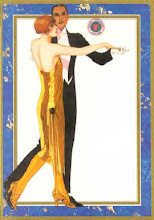They were an odd couple from the start, a teenage romance that tried—and, after 40 years, failed—to bridge the divides that were inherent in it from the start: political versus nonpolitical Washington; pure, driven ambition versus another day at the beach; a need to internalize and intellectualize versus the drummer in the band.
I've known Al and (less well) Tipper Gore since the early 1980s, and always thought that their marriage was the quirky, unstable leftover of their youths in the capital. Gore was as "federal" as you could get, the princely son of a senator living at the Fairfax Hotel and commuting up Massaschusetts Avenue to prep school at St. Albans. Tipper was all local, the fun-loving daughter of a well-to-do Arlington, Va ., businessman (and who gave the young couple the suburban house they lived in). It had to have been thrilling—and an act of teenage rebellion for them both—when they literally crossed the river for each other.
But the driven Gore—whose father reared him with the expectation that he would be president—was, after a fitful start (reporter, theology student)—focused intently on a political life. His wife, by contrast, always seemed unsettled in the role of the Good Wife, the dutiful, careful, and absorbed political spouse.
She did her best. In the old days, the Gores used to have a Christmas party at their Arlington home when their kids were young; Gore staffers would dress as Santas and elves. Al tried to enjoy these events (even though he wasn't much for easy social chatter), but I always thought that Tipper, genial as she was, seemed a bit nonplussed by the use of her home for such a mix of public, political, and private life.
Tipper loved to take photographs at events—a way to express herself artistically but always a way to distance herself from them.
The two sometimes could seem yoked together like the figures on a wedding cake. When, as vice president, they hosted Halloween parties, they dressed in elaborate costumes (provided by the Walt Disney Co.) that some years completely hid their identity as individuals. It was a kind of goof on the whole enterprise: guests had their pictures taken with "hosts" no one could identify. I didn't think the Gores were enjoying themselves in the heavy armor of costumes.
A visit to the vice presidential mansion in the Clinton-Gore years—I went there a couple of times for interviews—never yielded much if any time with Tipper. You were there to talk politica and policy with Al, and Al only. It's not that Tipper was hidden away; she just wasn't part of the equation.
The Gores had more than their share of challenge and tragedy. Al lost his beloved sister to cancer; Tipper had depression issues; their son Albert III was nearly killed in a traffic accident in front of his father's eyes.
Al Gore is a worthy, earnest guy. He was ahead of his time on many issues, and right about much more than he was wrong
But no one would ever call him spontaneous; you always got the sense with Tipper that she was one eye roll away from giving up on the whole enterprise of living a public life.




















